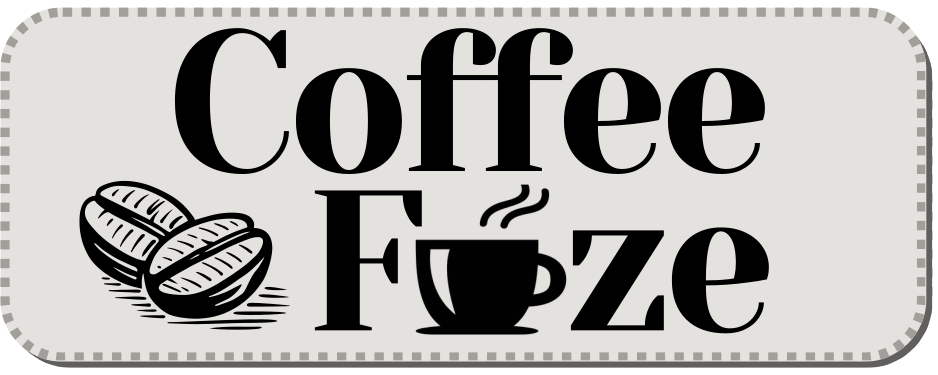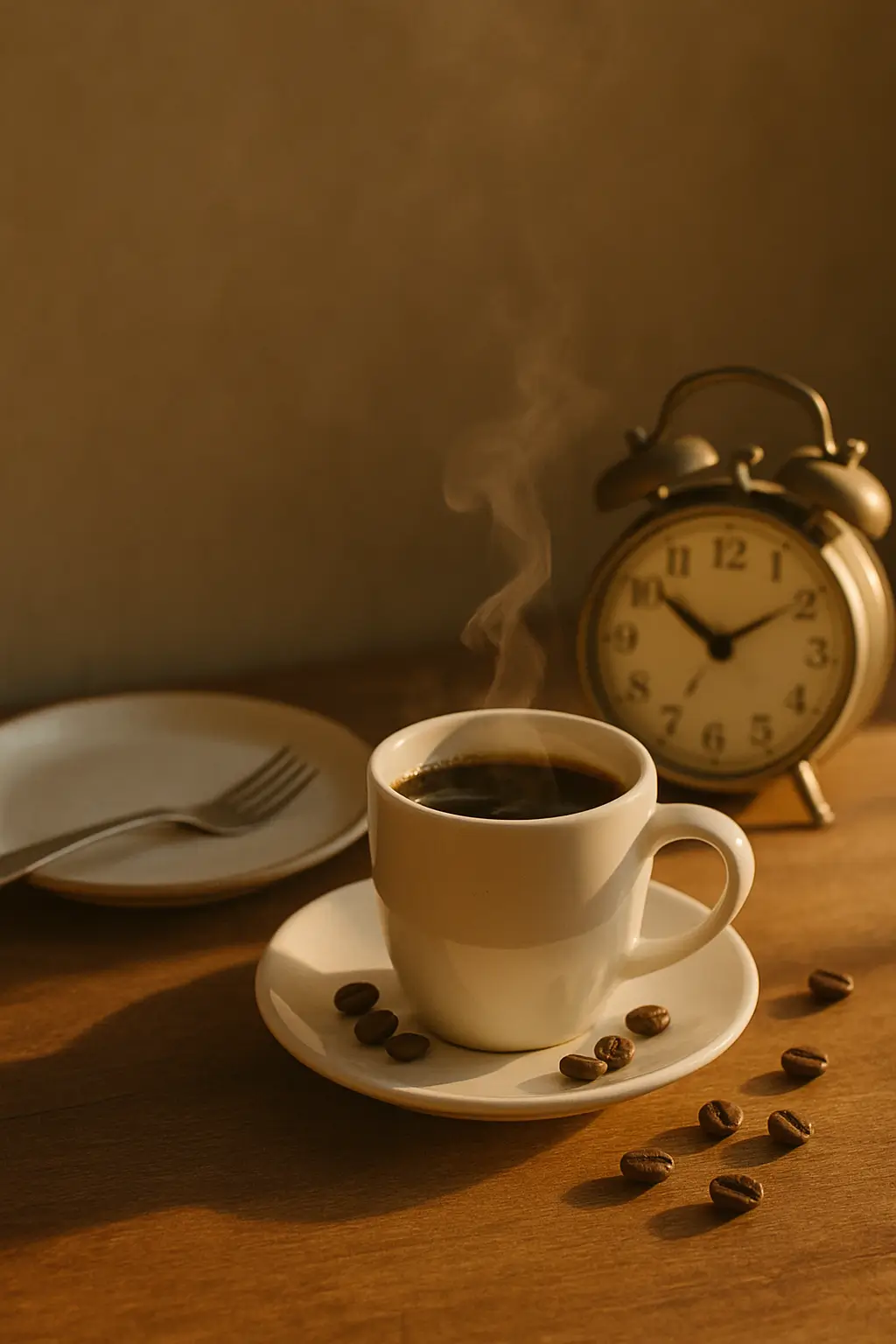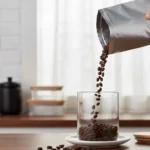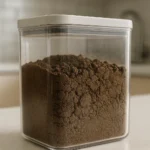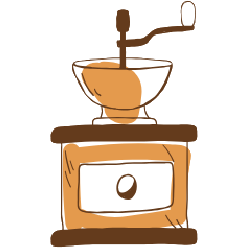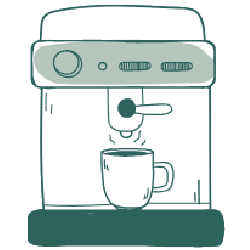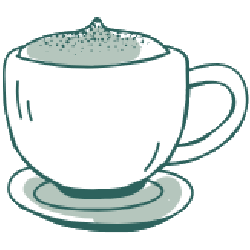Plenty of people use a fasting approach, like intermittent fasting, to get various metabolic advantages. You probably wonder: can you really drink black coffee while fasting? I’ll give you a clear, science-backed answer about whether black coffee breaks your fast. We’ll also look at its benefits and drawbacks for your health journey.
- Does black coffee break a fast?
- What are the science-backed benefits of black coffee during fasting?
- What are the potential drawbacks of black coffee when fasting?
- What are the best practices for consuming black coffee while fasting?
- What other beverages are fast-friendly?
- What is the conclusion regarding black coffee when fasting?
Coffee is a daily ritual for so many around the world. If you’re fasting, you need to know if coffee fits in. I’ll explain black coffee’s calorie count, how it affects your body’s metabolic processes, and the best ways to drink it.
Does black coffee break a fast?
Generally, plain black coffee won’t break your fast. It has almost no calories or macronutrients that would trigger an insulin response or mess with your fasting metabolism. With practically zero calories – about 3 calories for a 240 ml cup – you can safely drink it during your fast without losing any of the benefits.
Why is black coffee generally accepted during fasting?
You can drink black coffee during your fast because it has so few calories. A regular cup usually has about 3 calories per 240 ml. This tiny amount won’t cause a big insulin release, so your body stays in a fasted state. Your body keeps going with important fasting processes, like burning fat, without stopping.
What is the calorie and macronutrient factor of black coffee when fasting?
Your body stays in its fasting metabolic state when you consume things with very few calories, proteins, fats, or carbohydrates. Black coffee has almost none of these. This is how you prevent breaking fat burning and autophagy, two important processes that kick in when you fast.
What definitely breaks a fast when consuming coffee?
Things like milk, sugar, cream, or flavored syrups will definitely break your fast. These additions bring in calories and insulin-stimulating components that stop your fasted state. Even too much artificial sweetener, though often calorie-free, might sometimes cause a “head-start” insulin spike or make you crave food.
Keep your coffee plain black if you want to stay truly fasted. Any calories you add will cancel out the metabolic benefits of your fast. You need to know what breaks a fast for intermittent fasting to really work for you.
| Additive | Breaks Fast? | Reason |
| Sugar | Yes | High caloric & carbohydrate content; causes insulin spike. |
| Milk | Yes | Contains lactose (sugar) & calories; stimulates insulin. |
| Cream | Yes | Contains fats & some carbohydrates; provides calories. |
| Flavored Syrups | Yes | High sugar content; provides significant calories. |
| Artificial Sweeteners | Generally No | Zero calories, but may stimulate cravings or cephalic insulin response in some. |
| Nut Milks (Sweetened) | Yes | Contains added sugars and calories. |
| Nut Milks (Unsweetened) | Depends | Small amounts (e.g., a splash) may be acceptable for some, but can still contain trace calories. |
What are the science-backed benefits of black coffee during fasting?
Drinking caffeine during your fasting window usually helps your metabolism, autophagy, and ketosis. It doesn’t hinder them, as long as you drink it black with no additives. Black coffee actually gives you several fasting benefits that can make your whole fasting experience better.
How does black coffee boost metabolism and fat burning when fasting?
Black coffee really revs up your metabolism thanks to its caffeine. Caffeine kicks your nervous system into gear, releasing epinephrine (adrenaline) into your blood. This hormone speeds up your metabolic rate and tells fat cells to break down fat. That boosts fat oxidation and thermogenesis, which is heat production. So, your body uses stored fat for energy much more efficiently, helping you with weight loss during your fast.
Does black coffee support autophagy and cellular repair?
Yes, black coffee absolutely helps with autophagy and cellular repair. It’s packed with polyphenols, especially chlorogenic acid. These compounds activate enzymes like AMPK, which are really important for regulating autophagy. Autophagy is your body’s natural cleanup system for cells, getting rid of damaged ones and encouraging new growth. Drinking autophagy coffee during a fast helps boost this essential cellular detox and rejuvenation – a big advantage of fasting.
Can black coffee enhance ketosis and mental clarity when fasting?
Black coffee can boost both ketosis and mental clarity when you’re fasting. Caffeine might help with ketone production, which supports your body’s switch to burning fat for fuel. Plus, caffeine stimulates your central nervous system, making your focus, mood, and overall brain function better by affecting your neurotransmitters. This mental lift works well with the clarity you often feel from ketones, making caffeine and ketosis a potent mix for mental sharpness during your fast.
Does black coffee offer appetite suppression and hunger management when fasting?
Black coffee definitely helps suppress your appetite and manage hunger during fasting. Caffeine works to lower ghrelin, which people call the “hunger hormone.” It also ramps up satiety hormones, making it easier for you to stick to your fasting windows and cut down on cravings. This can be super useful if you’re new to intermittent fasting and the rules around coffee.
Is black coffee rich in antioxidants when fasting?
Yes, black coffee is full of antioxidants. These give you great health benefits when you’re fasting. They help lower oxidative stress and inflammation in your body. This antioxidant kick works with the anti-inflammatory effects already happening from fasting, helping your cells stay healthy and strong.
What are the potential drawbacks of black coffee when fasting?
Black coffee can offer many benefits during a fast, but it also has potential downsides. These usually come down to how sensitive you are to caffeine and your overall fasting comfort during your fasting window. Here are some drawbacks you might encounter:
- Gastrointestinal discomfort: For some people, black coffee on an empty stomach can really cause gastrointestinal discomfort. Coffee is acidic, and without food to buffer that acidity, it might lead to acid reflux, stomach irritation, or heartburn. You might notice this more if you tend to have a sensitive stomach or ulcers.
- Caffeine sensitivity side effects: How strongly you react to black coffee during a fast depends on your caffeine metabolism. If you have caffeine sensitivity, you might feel jittery, have an increased heart rate, anxiety, or even headaches. These feelings can work against the calm and focus you’re often looking for during a fast, especially if you’re drinking caffeine during longer fasts.
- Impact on sleep quality: Drinking black coffee too late can really mess with your sleep quality, even if you’re fasting. Caffeine sticks around in your system for hours because it has a long half-life. If you drink it too late, it can disrupt your circadian rhythm and keep you from getting good sleep, which then negates the restorative benefits of fasting. Getting the timing right is truly important for healthy fasting.
- Dependency and masked hunger: If you lean too much on black coffee to curb hunger during a fast, you might develop a caffeine dependency. This could make fasting without coffee much tougher. It might also make it harder for you to recognize your real hunger signals. You need to tell the difference between actual hunger and the temporary relief caffeine gives you, especially if you want sustainable, healthy fasting habits.
What are the best practices for consuming black coffee while fasting?
To add black coffee to your fasting routine in a way that’s effective and safe, you should stick to a few best practices. These tips help you get the most out of it and avoid the downsides, making your fasting period comfortable and successful.
Why should you keep your black coffee black with no additives when fasting?
You absolutely need to keep your black coffee strictly black, with no additives, when you’re fasting. Remember, avoid any caloric additions – that means no sugar, milk, cream, or even most artificial sweeteners. These things add calories that will break your fast and can also trigger cravings, which works against your fasting goals. Only plain black coffee keeps you in that fasting metabolic state.
Is moderation key for black coffee when fasting?
Yes, moderation is absolutely essential when you’re drinking black coffee during a fast. I suggest limiting yourself to 1-3 cups a day, depending on what you can tolerate and how sensitive you are to caffeine. If you drink too much, you could end up with jitters, anxiety, or stomach problems, which just takes away from the good feeling of fasting. Pay attention to your body and adjust how much you drink.
Why should you listen to your body when consuming black coffee during fasting?
You should always listen to your body when you’re drinking black coffee during a fast. Everyone reacts to caffeine differently. Pay close attention to how coffee affects you personally. Change how much you drink based on your digestive comfort, energy levels, and any side effects. Your body gives you important feedback about what really works for your unique system.
What is the best timing for your black coffee intake when fasting?
The best time to drink black coffee while fasting is earlier in your fasting window. Try to avoid coffee several hours before bed to prevent sleep disruption. For instance, if you usually fast until noon, having your coffee in the morning is fine, but don’t drink it after mid-afternoon. Good timing helps both your fast and your sleep quality.
Why prioritize hydration and electrolytes with black coffee when fasting?
You absolutely need to prioritize hydration and electrolytes when you drink black coffee during a fast. Remember, coffee doesn’t replace water. It’s incredibly important to drink enough water – I recommend 2-3 liters every day. For longer fasts, keeping your electrolyte balance (sodium, potassium, magnesium) becomes even more important to avoid common fasting side effects like headaches and fatigue. Think about electrolyte supplementation during fasting if you need to.
What other beverages are fast-friendly?
You can drink several other fast-friendly beverages during a fast without breaking it. These non-caloric liquids help you stay hydrated and manage hunger. Picking the right drinks truly helps you reach your fasting goals.
- Plain water: Still, sparkling, or mineral water is your top choice for hydration, with zero calories.
- Unsweetened tea: Green tea, black tea, or herbal teas work well, as long as they have no added sweeteners or milk.
- Diluted apple cider vinegar: A little bit of diluted apple cider vinegar, completely calorie-free, can sometimes help you feel less hungry.
- Bone broth: This does have some calories, so it technically starts a “dirty fast.” Still, bone broth offers electrolytes and nutrients. Some people use it during longer fasts if they have specific goals.
Always choose drinks that are free of calories, sugars, and artificial additives. That’s how you make sure your fast stays on track. If you want a longer list, check out our guide on approved drinks during fasting.
What is the conclusion regarding black coffee when fasting?
Black coffee is usually fine for fasting, and it can bring some great fasting benefits. Think enhanced metabolism, autophagy, and better mental clarity. But you need to drink it in moderation and know your personal tolerance for a good experience. The main rule is to avoid any caloric additives like sugar, milk, or cream – those will absolutely break your fast. When you understand coffee and intermittent fasting, you can use it smart.
Listen to your body, make hydration a priority, and drink black coffee mindfully. That’s how you support your personal fasting journey. When you find what works best for you, you’ll get the rewards of both fasting and coffee. Are you adding black coffee to your fasting routine? What has your experience been like? You can always check out our other guides on healthy hydration and electrolyte balance if you’re looking to improve your fasting routine.
